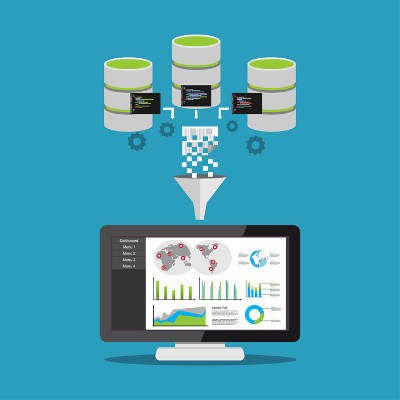
Boost Efficiency with Business Intelligence Software
In today’s fast-paced and competitive business landscape, companies are constantly seeking ways to improve their efficiency and gain a competitive edge. One of the most effective ways to achieve this is by leveraging business intelligence (BI) software. BI software provides organizations with the ability to analyze and interpret complex data, making it easier to make informed decisions and drive business growth. In this article, we will explore the benefits of using BI software and how it can help boost efficiency in various aspects of a business.
What is Business Intelligence Software?
Business intelligence software refers to a set of tools and technologies used to collect, analyze, and present data to help organizations make better decisions. BI software combines data from various sources, such as customer relationship management (CRM) systems, enterprise resource planning (ERP) systems, and marketing automation platforms, to provide a unified view of the business. This enables companies to gain insights into their operations, identify areas of improvement, and optimize their processes.
Benefits of Business Intelligence Software
The benefits of using BI software are numerous and can have a significant impact on a company’s efficiency and profitability. Some of the key benefits include:
- Improved Decision-Making: BI software provides organizations with accurate and timely data, enabling them to make informed decisions. By analyzing data from various sources, companies can identify trends, patterns, and correlations that might not be apparent through traditional reporting methods.
- Enhanced Visibility: BI software provides a unified view of the business, enabling companies to monitor their operations in real-time. This includes visibility into sales, marketing, finance, and other departments, making it easier to identify areas of improvement.
- Increased Efficiency: BI software automates many manual processes, such as data collection and reporting, freeing up staff to focus on higher-value tasks. Additionally, BI software can help identify bottlenecks and inefficiencies in business processes, enabling companies to optimize their operations.
- Better Customer Insights: BI software provides companies with a deeper understanding of their customers, including their behavior, preferences, and needs. This enables companies to develop targeted marketing campaigns, improve customer satisfaction, and increase loyalty.
- Competitive Advantage: Companies that use BI software can gain a competitive advantage by making data-driven decisions, identifying new opportunities, and optimizing their operations.
How Business Intelligence Software Boosts Efficiency
BI software can boost efficiency in various aspects of a business, including:
- Sales and Marketing: BI software provides sales and marketing teams with insights into customer behavior, enabling them to develop targeted campaigns and improve conversion rates.
- Finance and Accounting: BI software automates financial reporting, enabling finance teams to focus on higher-value tasks, such as financial analysis and planning.
- Operations and Logistics: BI software helps companies optimize their supply chain, manage inventory, and streamline operations, leading to cost savings and improved efficiency.
- Customer Service: BI software provides customer service teams with insights into customer behavior and preferences, enabling them to provide personalized support and improve customer satisfaction.
- Human Resources: BI software helps HR teams analyze employee data, enabling them to identify trends, optimize recruitment processes, and improve employee engagement.
Types of Business Intelligence Software
There are various types of BI software available, each with its own strengths and weaknesses. Some of the most common types of BI software include:
- Dashboards and Scorecards: These provide a visual representation of key performance indicators (KPIs) and metrics, enabling companies to monitor their operations in real-time.
- Reporting and Analysis Tools: These enable companies to create reports and analyze data from various sources, providing insights into business operations.
- Data Visualization Tools: These provide a graphical representation of data, enabling companies to identify trends, patterns, and correlations.
- Predictive Analytics: These use statistical models and machine learning algorithms to forecast future events and predict customer behavior.
- Big Data Analytics: These enable companies to analyze large volumes of structured and unstructured data, providing insights into customer behavior and business operations.
Implementing Business Intelligence Software
Implementing BI software can be a complex process, requiring significant investment in time, money, and resources. However, with a well-planned approach, companies can ensure a successful implementation and maximize the benefits of BI software. Some key considerations when implementing BI software include:
- Define Business Objectives: Clearly define the business objectives and goals that the BI software is intended to achieve.
- Assess Data Quality: Assess the quality of the data that will be used to populate the BI software, ensuring that it is accurate, complete, and consistent.
- Choose the Right Software: Choose a BI software that meets the company’s specific needs and requirements, taking into account factors such as scalability, flexibility, and ease of use.
- Develop a Implementation Plan: Develop a detailed implementation plan, including timelines, milestones, and resource allocation.
- Provide Training and Support: Provide comprehensive training and support to end-users, ensuring that they are able to effectively use the BI software and maximize its benefits.
Conclusion
Business intelligence software is a powerful tool that can help companies boost efficiency, improve decision-making, and drive business growth. By providing a unified view of the business, automating manual processes, and enabling data-driven decision-making, BI software can have a significant impact on a company’s profitability and competitiveness. With a wide range of BI software options available, companies can choose the solution that best meets their specific needs and requirements. By following a well-planned implementation approach, companies can ensure a successful implementation and maximize the benefits of BI software. In today’s fast-paced and competitive business landscape, companies that leverage BI software can gain a significant advantage over their competitors and achieve long-term success.
Closure
Thus, we hope this article has provided valuable insights into Boost Efficiency with Business Intelligence Software. We thank you for taking the time to read this article. See you in our next article!


